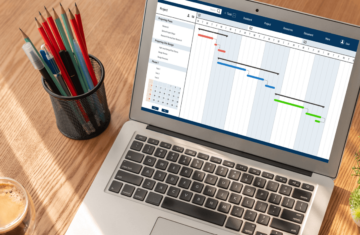Choosing the right software and tools is crucial for the success of your Bookkeeping business. The right tools can enhance efficiency, improve accuracy, and streamline your workflows.
This blog will guide you through selecting the right software and tools for your Bookkeeping business, with a focus on essential features and popular options like Xero, MYOB, Infusion and Figabooks.
Importance of Choosing the Right Software
As a Bookkeeper, you handle sensitive financial data and manage multiple clients’ accounts. Using appropriate software ensures you can deliver accurate, timely services while maintaining security and compliance. The right software helps automate routine tasks, reduces errors, and provides valuable insights through reporting and analytics.
Key Features to look for
Ease of Use:
- Choose software that is user-friendly and easy to navigate.
- Look for intuitive interfaces that simplify complex tasks.
Integration Capabilities:
- Ensure the software integrates seamlessly with other tools you use, such as CRM systems, payment processors, and tax software.
- Integration enhances workflow efficiency and data accuracy.
Automation:
- Opt for software that offers automation features, such as automated data entry, bank reconciliation, and invoicing.
- Automation reduces manual work and minimises the risk of errors.
Scalability:
- Select software that can grow with your business.
- Ensure it can handle an increasing number of clients and transactions without compromising performance.
Security:
- Prioritise software with robust security measures, including data encryption, two-factor authentication, and regular backups.
- Protecting client data is paramount to maintaining trust and compliance.
Reporting and Analytics:
- Choose software that provides comprehensive reporting and analytics capabilities.
- Generate detailed financial reports and insights to help clients make informed decisions.
Customer Support:
- Opt for software with reliable customer support.
- Ensure you can access help when needed, whether through phone, email, or live chat.
Top Software Recommendations
Xero:
- Xero is a popular cloud-based accounting software known for its user-friendly interface and powerful features.
- It offers automation for bank reconciliation, invoicing, and payroll.
- Xero integrates with over 800 apps, including CRM systems and payment processors.
- It provides robust reporting and analytics tools to help you monitor financial performance.
MYOB:
- MYOB is another widely used accounting software that caters to small and medium-sized businesses.
- It offers features like automated bank feeds, payroll management, and expense tracking.
- MYOB integrates with various third-party apps and services.
- It provides comprehensive reporting tools to generate financial statements and business insights.
Infusion:
- Infusion is a powerful business management software designed for small to medium-sized enterprises.
- It offers features such as job costing, inventory management, and CRM capabilities.
- Infusion integrates with accounting software like Xero and MYOB for seamless financial management.
- It provides detailed reporting and analytics to help you track business performance and profitability.
FigaBooks:
- FigaBooks is an emerging Bookkeeping software tailored for small businesses and freelancers.
- It offers features like invoice management, expense tracking, and bank reconciliation.
- FigaBooks integrates with various payment gateways and third-party applications.
- It provides user-friendly reporting tools to help you manage finances effectively.
Essential Tools for Bookkeepers
Document Management Systems:
- Use document management tools to organise and store client documents securely.
- Options like Google Drive, Dropbox, and Microsoft OneDrive offer cloud storage and easy file sharing.
Customer Relationship Management (CRM) Systems:
- Implement a CRM system to manage client relationships and track interactions.
- Tools like HubSpot, Zoho CRM, and Salesforce help you stay organised and provide personalised service.
Time Tracking and Billing Tools:
- Use time tracking tools to monitor billable hours and manage client billing.
- Options like Harvest, Toggl, and FreshBooks offer time tracking and invoicing features.
Communication Tools:
- Implement communication tools to stay connected with clients and team members.
- Tools like Slack, Microsoft Teams, and Zoom facilitate seamless communication and collaboration.
Choosing the Right Software and Tools for Your Bookkeeping Business
Choosing the right software and tools is critical for the success of your Bookkeeping business. By selecting software that offers ease of use, integration capabilities, automation, scalability, security, reporting, and customer support, you can streamline your workflows and provide excellent service to your clients.
Consider top software options like Xero, MYOB, Infusion and Figabooks, and incorporate essential tools like document management systems, CRM systems, time tracking tools, and communication tools to enhance your efficiency and productivity.
Ready to take the next step in starting your own Bookkeeping business?
Download our comprehensive to-do checklist to ensure you’ve covered all the essential tasks for a successful start. This checklist is designed to guide you through every stage of setting up and scaling your business, from initial planning to compliance and growth strategies.
If you’re truly committed to launching your Bookkeeping business and want personalised guidance, consider joining our Bookkeeping Mentoring Program.
This 10-week programme connects you with experienced Bookkeepers who have successfully navigated the challenges of starting and growing their own businesses. Benefit from their insights, advice, and support as you take your first steps towards building a thriving Bookkeeping business.
Disclaimer: The information provided on this webpage is intended for general informational purposes only and does not constitute professional advice. While every effort has been made to ensure the accuracy and completeness of the content, the specifics of starting and managing a Bookkeeping business can vary depending on individual circumstances and changes in regulations. We recommend consulting with legal, financial, and business professionals to obtain advice tailored to your situation. The authors and publishers of this webpage accept no responsibility for any actions taken based on the information provided.




